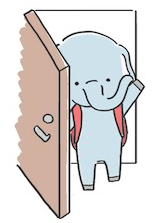どこの国でも「自分の国のここが素晴らしい」と思うものがあります。では、日本人は何にプライドを持っているのでしょうか。今日は少しだけそれを見ていきたいと思います。
(1) 配慮
日本は島国で同じ民族が狭い土地に暮らしています。そのため周りの人を気を使う習慣が自然にできてきます。人がいるところで大きな声で話さない、ゴミを放置しない、いつも周りの目を気にして生きています。それが街がキレイな理由だと思います。
(2) 礼儀を守る
上記と同じ理由で、日本には目上・目下というルールが有り、目上の人には敬語を使って話します。また、やって良いことと悪いことを理解してルールを守って生活をしています。
(3) 天皇陛下
海外の人には理解しづらいかと思いますが、日本人の多くは天皇陛下をとても大切に考えています。ですから天皇や皇族について話すときは必ず敬語を使います。
(4) 勤勉さ
日本人は言われたこと、やらなければならないことを一生懸命にするという国民性を持っています。ただ反対に日本人は独自性に欠ける部分も多いと思います。
(5) ルールを守る
配慮と礼儀にもつながるのですが、日本人はルールを守ります。そしてルールを守ることにプライドを持っています。逆に言えば独自性が少なく、誰かから何か言われないとできないという傾向にあるように思います。
これらが日本人が持つプライド、日本人らしさです。この他にもあれば、ぜひ皆さんのご意見を聞かせてください。
What Japanese people take pride in
In every country, there are things that most people think are great about their country. So, what do Japanese people take pride in? Today, I’d like to look at a few:
(1) Consideration
Japan is an island nation where everyone lives in a small area. As a result, we naturally develop the habit of being considerate of everyone around us. Namely, we don’t talk loudly when other people are around or leave our garbage behind when we leave a room. Instead, we pay attention to our surroundings in our daily lives. I think this is the reason why the city is so clean.
(2) Respect
Because we tend to be considerate, there’s also a superior and inferior rule in Japan. When talking to a superior, we use respectful language. We also understand what we’re allowed to do and what we aren’t allowed to do. And we live our lives according to those rules.
(3) Royalty
It may be difficult for some people to understand, but most Japanese people believe that the emperor is very important. Therefore, when talking about the emperor and the royal family, we always use respectful language.
(4) Diligence
Japanese people generally try their best to do what needs to be done and what they’re told to do. However, I think there are many areas where Japanese people lack originality because of this.
(5) Rule following
This is related to consideration and politeness, but Japanese people follow the rules. And they take pride in following the rules. Conversely, they have little originality. It can then inadvertently lead to the problem of not being able to do something unless someone tells them what to do.
These are the things that Japanese people take pride in. They represent the Japanese character. If there are any other things that Japanese people take pride in, please let me know as I would like to hear your opinions.

sign up for the Japanese-Online Newsletter
__..-・**・-..__..-・**・-.._ あいうえお かきくけこ さしすせそ たちつてと なにぬねの はひふへほ まみむめも やいゆえよ らりるれろ わゐうゑを ん __..-・**・-..__..-・**・-.._
Japanese-Online offers a complete Japanese video course
only $14/month!
Learn more at Japanese-Online.com
__..-・**・-..__..-・**・-.._ あいうえお かきくけこ さしすせそ たちつてと なにぬねの はひふへほ まみむめも やいゆえよ らりるれろ わゐうゑを ん __..-・**・-..__..-・**・-.._
#JapaneseOnline #LearningJapanese #FreeJapaneseLessons #JapaneseVideoLearning #JapaneseAnime #Anime #JapaneseFood #Bloguru









